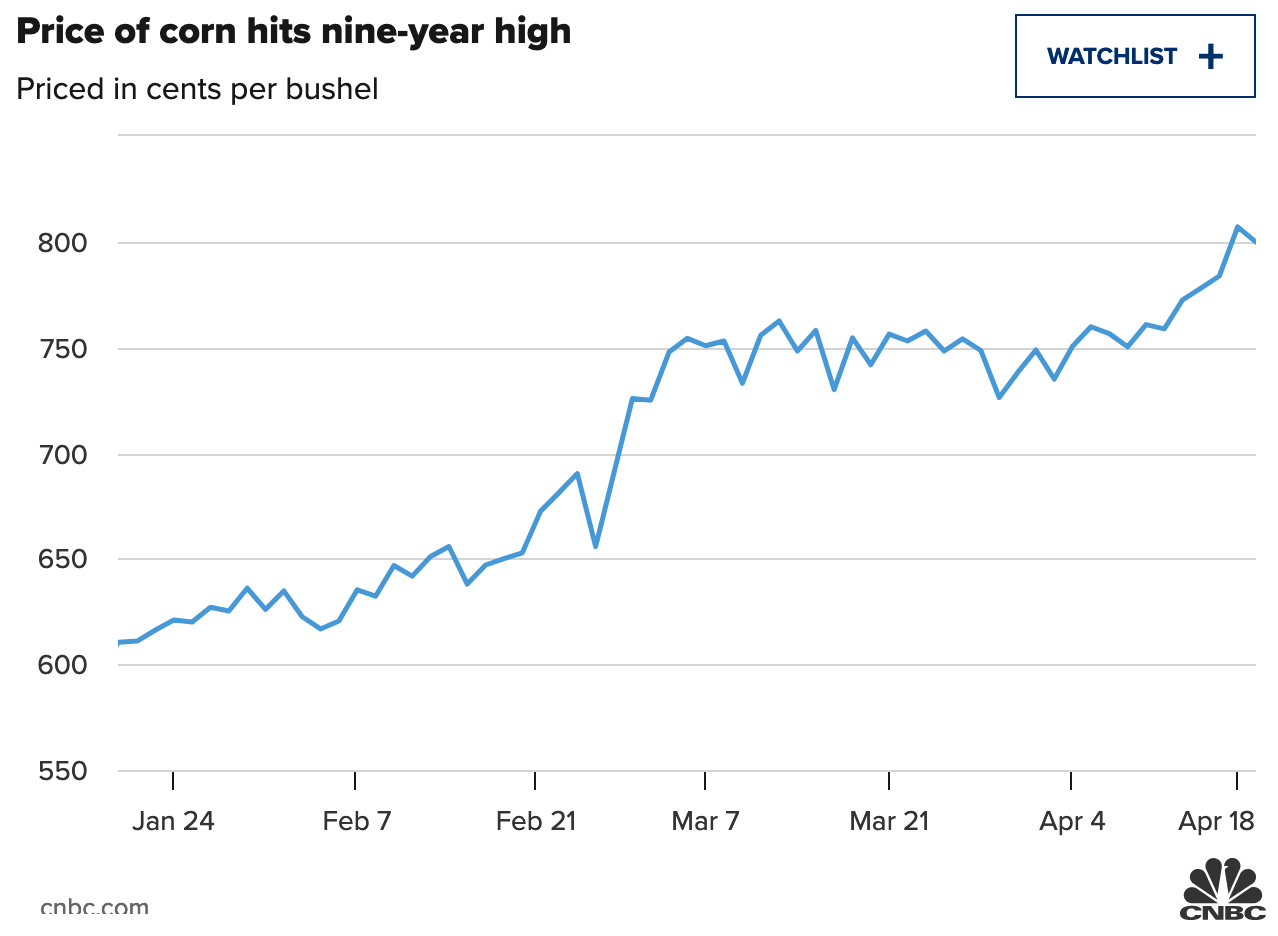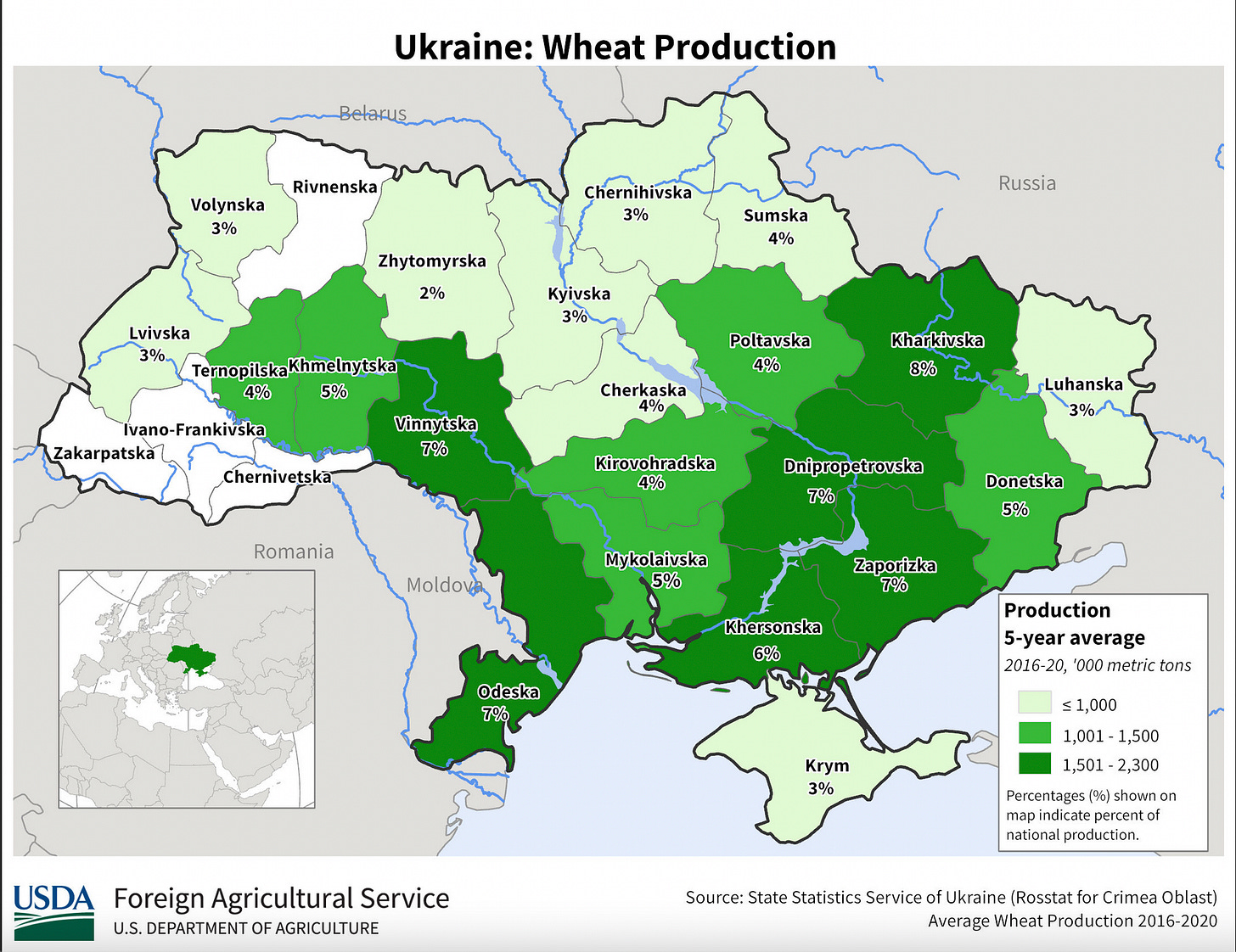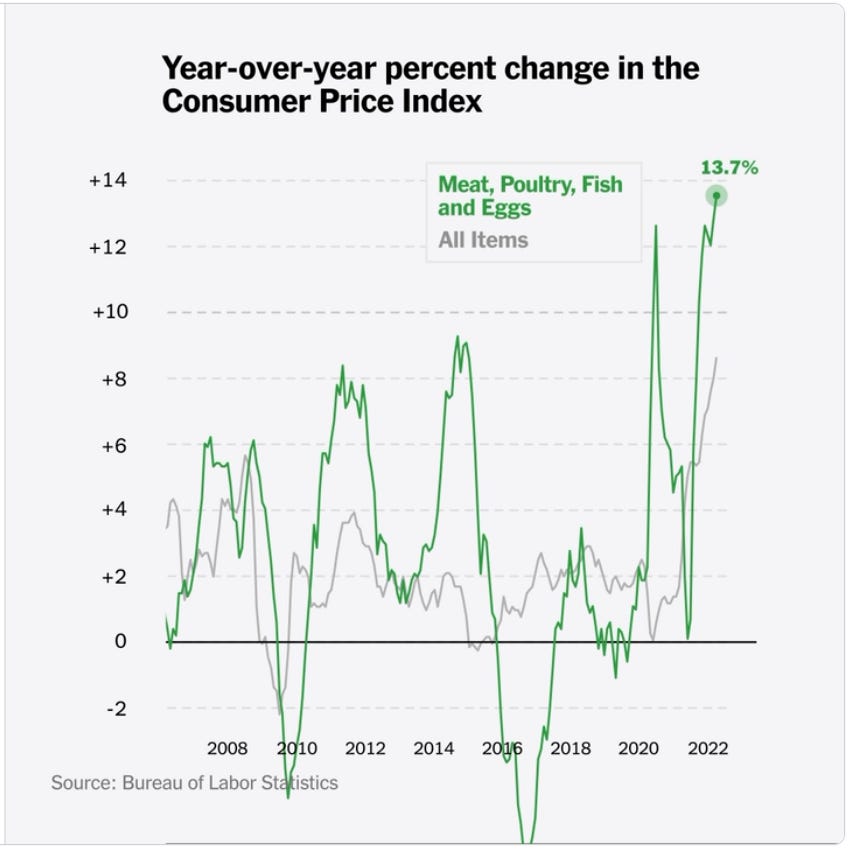The war in Ukraine is exacerbating global food inflation, creating a humanitarian crisis and potentially expanding the conflict.
(Originally published April 21 in “What in the World“) The deteriorating global security situation has created a correspondingly dire situation for food. The price of corn, for example, rose this week to its highest in nine years.
The world has entered a vicious conflict-commodities cycle, whereby conflict and sanctions have disrupted trade in commodities, sending prices for key comestibles soaring, contributing to socially destabilizing inflation and food shortages that increase the risk of social unrest and military action as nations vie to secure crucial resources.

Corn, of course, is a substitute for wheat, prices for which have also soared due to the war in Ukraine (a port strike in Argentina, the world’s second-largest corn exporter, isn’t helping either). Ukraine is a major exporter of wheat; Russia is the world’s largest. And while the Donbas region where the latest battle is focused accounts for only 8% of Ukraine’s national wheat production, the war is raging much more widely. The conflict has also shut ports like Mariopol, meaning Ukraine’s wheat can’t get to market.

Rising food prices are contributing to the persistent inflation plaguing the global economy as nations try to move past the continued threat of the Covid-19 pandemic. U.S. food prices account for a significant portion of the consumer price index, jumped more than 13% last month. That’s a considerable annoyance for Americans, but it’s potentially devastating in poorer countries. The World Bank has warned that record surges in food prices could push millions into poverty

Russia, meanwhile, raised the temperature even further by test-launching a new, nuclear-capable intercontinental ballistic missile it says can evade any anti-missile system. It said the Sarmat missile would be deployed to its forces by this fall.
Analysts are still weighing the significance of the Solomon Islands’ new security agreement with China, and the early prognosis isn’t good. At a minimum, the agreement allows Honiara to call in Chinese forces to quell any public unrest. It could result in a temporary, or even permanent, Chinese military presence in the Solomons, which occupy a strategic position on Pacific shipping routes. It may also signal a new phase in China’s overseas relations, one in which it assumes the right to intervene to protect its economic interests overseas where a local government isn’t able to do so—which sounds vaguely similar to the way the United States approaches foreign policy.